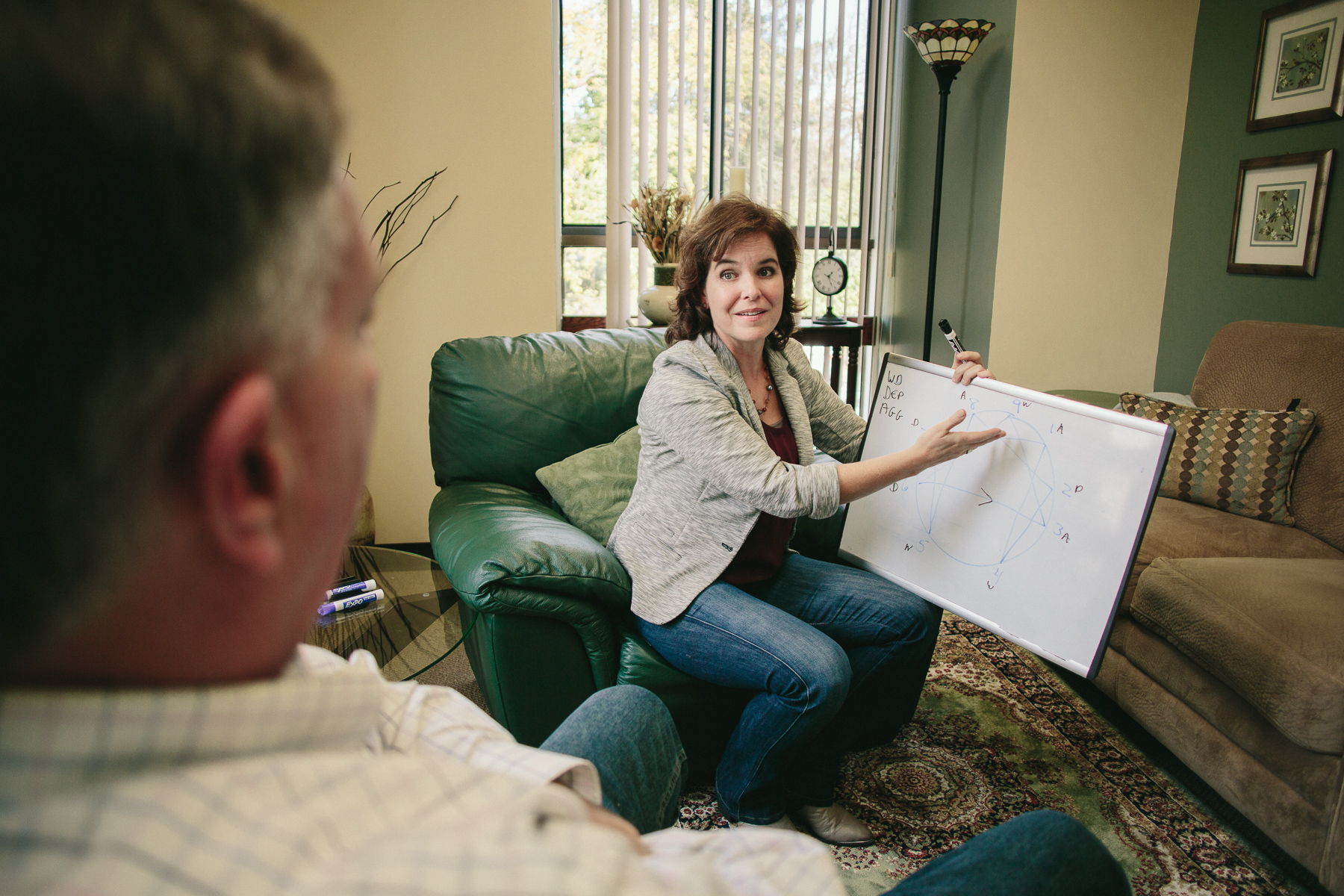Face it, there is absolutely nothing as exhilarating as falling in love. What’s it like for you? Do you lose your appetite? Lose sleep? Feel your heart lurch when you see your love? I don’t think I ate more than 3 bites in one sitting for about a month after I started dating my husband. Now that we’ve been married 20 years, no matter how wonderful the romantic dinners are, or the vacation get-away is, I eat just fine.
There are many ways that couples in long-term relationships lose their way. Feeling “out of love” and disconnected are actually normal experiences. But to evaluate your 7, 20, or 35-year experience next to the initial rush of romantic love is hardly the best way to understand the experience of long-term romantic love. Dr. Schnarch recounts an experience in therapy with a couple where he says this, “‘you can’t go back to the romantic love you shared early in your relationship…But that’s not the problem. You need to go forward. That’s what everyone needs to do: Your sexual desire has to come from an entirely new source. Lots of people find this more satisfying than what they had before.” (p.22) Did you catch that? MORE SATISFYING. But it’s different, coming from a different source.
Brain research actually confirms this. The areas of the brain that are engaged during initial romance are different than the areas that engaged in solid, long-term, connected love. Schnarch’s book claims that “your brain cannot maintain this revved-up state for long. ‘Many of us would die of sexual exhaustion if romantic love flourished endlessly in a relationship.’” I might have starved! So what does it mean to evaluate one’s long-term relationship without the pressure of expecting to rekindle something that really cannot be replicated? If we’re supposed to hope for more satisfying, then how does a couple get there? Can we still hope for intensity, emotional excitement, and sexual newness?
ABSOLUTELY.
A good first step is to evaluate your sense of self in your relationship. Schnarch writes about the sense of self as “how you see yourself, how your partner treats you, and how you think your partner sees you” (p.25). Work on one’s sense of self happens both within the relationship and individually. Many people miss the need for the individual work. When this type of work is successful, couples can break out of long-term patterns with their partners that discourage a growing sense of self. And that, my dear readers, is very enticing… sexually and otherwise.
The quotes are from Dr. David Schnarch’s book, Intimacy and Desire. For the month of October, I’ll continue writing on this topic. I invite your comments and questions. Click here to read my review of the book.

